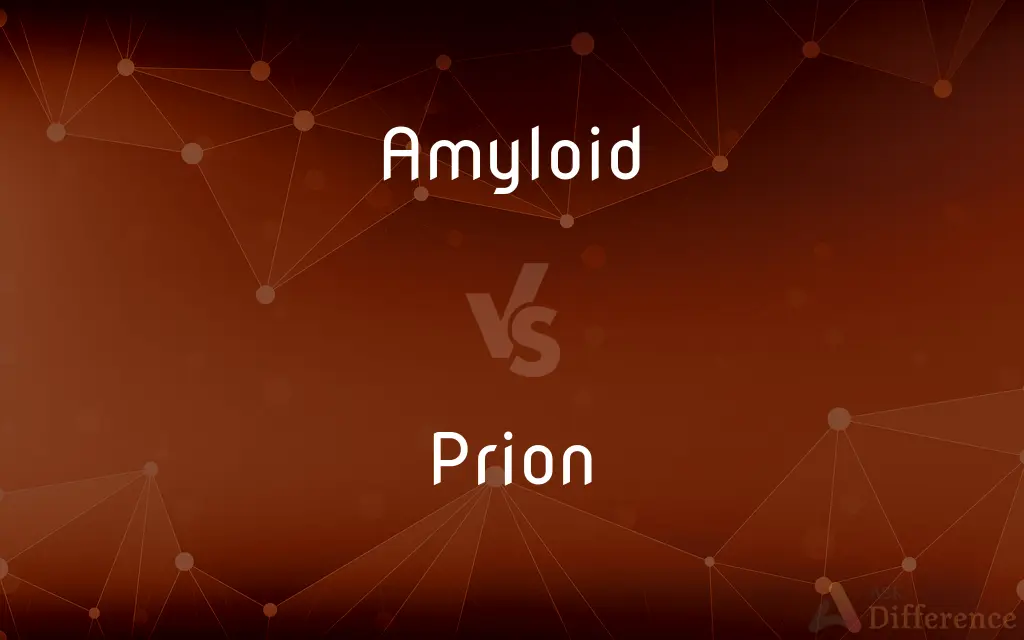Amyloid vs. Prion — What's the Difference?

Difference Between Amyloid and Prion
ADVERTISEMENT
Compare with Definitions
Amyloid
Amyloids are aggregates of proteins characterised by a fibrillar morphology of 7–13 nm in diameter, a beta sheet (β-sheet) secondary structure (known as cross-β) and ability to be stained by particular dyes, such as Congo red. In the human body, amyloids have been linked to the development of various diseases.
Prion
Prions are misfolded proteins with the ability to transmit their misfolded shape onto normal variants of the same protein. They characterize several fatal and transmissible neurodegenerative diseases in humans and many other animals.
Amyloid
A starchlike substance.
Prion
A protein particle that is the agent of infection in a variety of neurodegenerative diseases, including bovine spongiform encephalopathy, Creutzfeldt-Jakob disease, and scrapie. Prions are the only known infectious agents that do not contain DNA or RNA. They derive from a normal body protein that becomes irreversibly misfolded, and they proliferate in the body, possibly by acting as a template for further protein misfolding.
Amyloid
An insoluble, fibrous structure consisting chiefly of an aggregation of proteins arranged in beta sheets, forming extracellular deposits in organs or tissues and characteristic of certain diseases such as Alzheimer's disease and Parkinson's disease.
ADVERTISEMENT
Prion
(molecular biology) A self-propagating misfolded conformer of a protein that is responsible for a number of diseases that affect the brain and other neural tissue.
Amyloid
The substance that makes up such a structure.
Prion
A petrel of the genus Pachyptila.
Amyloid
Starchlike.
Prion
Any of several types of protein particle lacking nucleic acid, believed to be the cause of certain slow-developing infectious diseases such as scapie in sheep, and Creutzfeldt-Jakob disease and Kuru in humans.
Amyloid
Being or related to proteinaceous amyloid
Amyloid plaque.
Prion
(microbiology) an infectious protein particle similar to a virus but lacking nucleic acid; thought to be the agent responsible for scrapie and other degenerative diseases of the nervous system
Amyloid
A waxy compound of protein and polysaccharides that is found deposited in tissues in amyloidosis.
Amyloid
Any of various starchlike substances.
Amyloid
Containing or resembling starch.
Amyloid
(mycology) Applied to a mushroom that turns blue-black upon application of Melzer's reagent
Amyloid
Resembling or containing amyl; starchlike.
Amyloid
A non-nitrogenous starchy food; a starchlike substance.
Amyloid
The substance deposited in the organs in amyloid degeneration.
Amyloid
A nonnitrogenous food substance consisting chiefly of starch; any substance resembling starch
Amyloid
(pathology) a waxy translucent complex protein resembling starch that results from degeneration of tissue
Amyloid
Resembling starch
Share Your Discovery

Previous Comparison
Dictator vs. Strongman
Next Comparison
Farmer vs. Cowboy













































